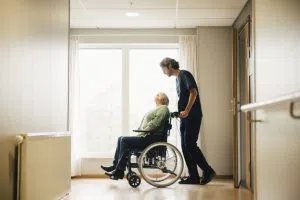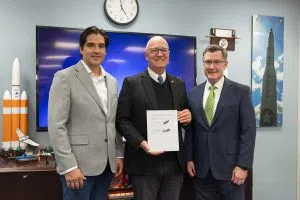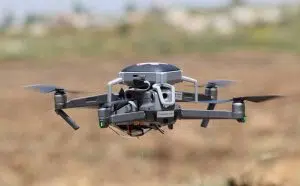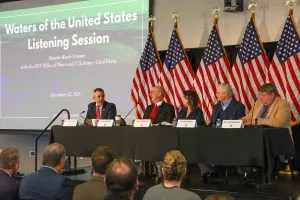
The Walz-Flanagan Administration announced the launch of mobile vaccination units this week to provide COVID-19 vaccinations to communities throughout the state of Minnesota. The mobile units are a key tool to ensure equitable distribution of vaccines, prioritize vulnerable and underserved communities, and reduce barriers to vaccination by going directly to communities.
The mobile vaccination units are a partnership between the Minnesota Department of Health (MDH), Blue Cross and Blue Shield of Minnesota, Metro Transit, the Metropolitan Council, and Minnesota Department of Transportation.
“Equity is a core value of Minnesota’s COVID-19 vaccination strategy, and every single Minnesotan deserves safe and equitable access to the vaccine. Making the COVID-19 vaccine available to as many people as possible is essential to ending the pandemic,” said Governor Tim Walz. “Our mobile vaccination units are ready to roll and will bring life-saving vaccine directly to communities that need them the most.”
“The mobile vaccination units are another example of the targeted strategies we’re using to better serve communities disproportionately impacted by COVID-19, including Black, Latinx, Asian Pacific Islander, and Native communities,” said Lieutenant Governor Peggy Flanagan. “These partnerships with community organizations help us make sure we are reaching people with the greatest need and providing vaccination opportunities that not only remove barriers but offer vaccines in a trusted and convenient location.”
Access to the COVID-19 vaccine is one of the greatest barriers to equitable rates of vaccination in Minnesota. MDH data demonstrate that Minnesotans who live in an area with a high Social Vulnerability Index score have been disproportionately affected by COVID-19, and COVID-19 vaccinations are lagging in many of these areas. Mobile vaccination units are an important tool to reach people from every focus community, including people who might not otherwise have access to vaccination opportunities.
“We recognize the historical discrepancies and inequities in health care delivery and we’re making every effort to engage with communities and partners to expand access to vaccines,” said MDH Commissioner Jan Malcolm. “These mobile vaccination units help supplement local public health and health care efforts to fill vaccine availability gaps while working in coordination with trusted community organizations statewide.”
Focus communities for the mobile units include, but are not limited to, people of color; urban Native Americans; LGBTQI+; people with disabilities and unique health needs; people experiencing homelessness; people more comfortable getting vaccinated in a trusted community space versus a clinic or similar; and people without access to vehicles. Other target populations could include large employers such as factories, food processing, and employers of seasonal and migrant workers.
Two mobile vaccination units will begin offering clinics this week and will scale up to six buses by the summer. The buses will operate Monday through Thursday throughout the summer, and each bus will be able to vaccinate up to 150 people per day.
Locations for the mobile vaccination units are identified through state demographic data, vaccination data, and testing data; as well as input from trusted community partners, local public health, and MDH equity leadership. In addition, community partners can request a mobile vaccine unit through a form on the MDH website. A request does not guarantee a visit from a mobile unit.
MDH will work with community organizations to help promote each mobile vaccination unit and register Minnesotans for appointments before it arrives. This targeted promotion helps make sure that people from the intended community are able to get vaccinated.
Metro Transit transformed six underutilized transit buses into mobile vaccination units by removing seating and installing new equipment. Each bus meets ADA requirements for transit vehicles.
More than 700 volunteers from Blue Cross will staff the buses and provide on-site support for vaccination events taking place throughout the summer. To promote good health and safety for all involved, MDH will ensure that all Blue Cross volunteers are fully vaccinated prior to participating in the events.
“The outpouring of support from Blue Cross associates has been just incredible,” said AJ McDougall, a senior vice president at Blue Cross and Blue Shield of Minnesota. “Advancing equitable distribution of COVID-19 vaccines across the state is a top priority for our company. It’s inspiring to see our people rally around opportunities like these to make every community as strong, safe and healthy as possible.”
“We’re proud of Metro Transit, who rolled up their sleeves to retrofit these buses so more Minnesotans can roll up theirs to get a COVID-19 vaccine,” said Metropolitan Council Chair Charlie Zelle. “And, we’re proud of this collaboration with health officials and the ingenuity of transit staff to create these mobile vaccine units that will provide equitable access to the vaccine across the state.”
Mobile vaccination units are one of many ways the state is working to provide equitable distribution and access to COVID-19 vaccine. The administration continues to:
- Partner with Federally Qualified Health Centers (FQHCs) to offer vaccine through community clinics serving low-income and uninsured Minnesotans.
- Expand vaccine distribution to more community pharmacies throughout the state.
- Implement pop-up community vaccination sites in partnership with COVID-19 Community Coordinators.
- Connect focus communities to vaccine in their area, and more.
Additional ways Minnesotans can get their shot:
- Register for the Vaccine Connector to get invited to make an appointment at one of the state’s COVID-19 Community Vaccination Program locations and connect to other vaccine opportunities near them.
- Minnesotans living in certain zip codes with high Social Vulnerability Index scores will be eligible to receive a vaccine at the new FEMA vaccination site at the Minnesota State Fairgrounds.
- Use the state’s Find Vaccine Locations map to find vaccine providers near them.
- Contact their primary health care provider or use the CDC’s VaccineFinder.
- Employers may also reach out with information about vaccination opportunities.
(Gov. Walz release)










